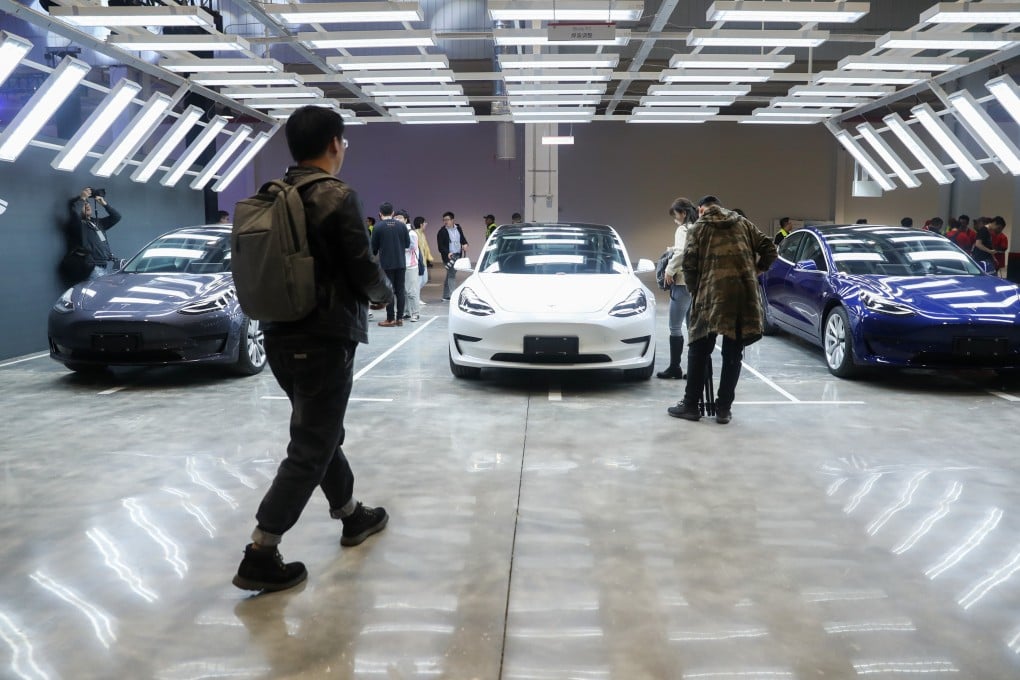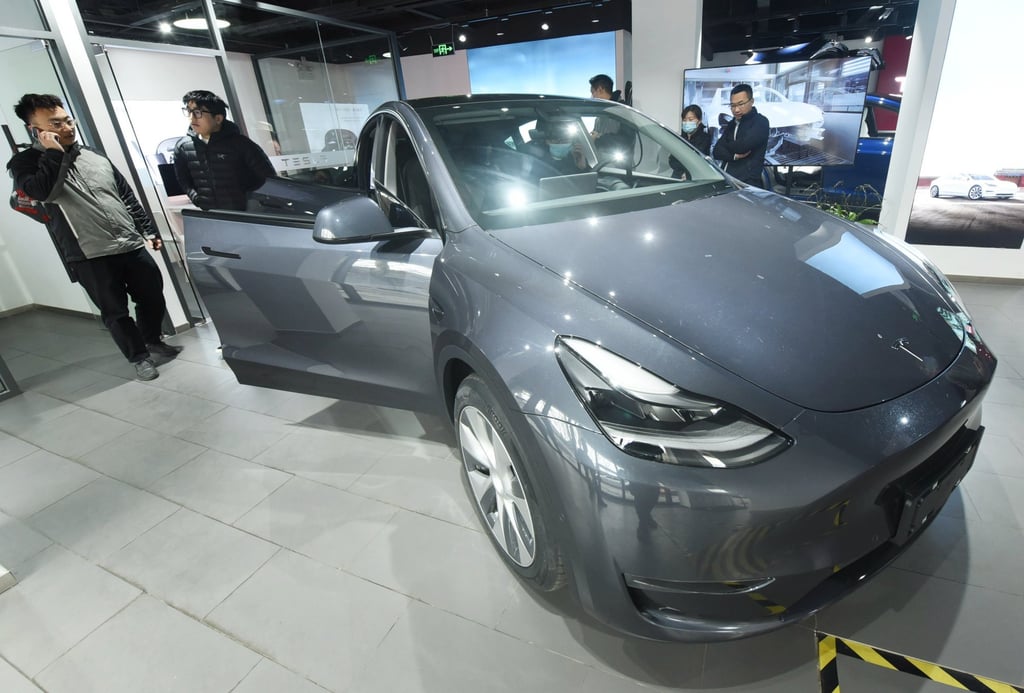Tesla raises prices of China-made Model 3 and Model Y electric vehicles amid shortage of automotive chips and parts
- Tesla raised the price of its entry-level Model 3 by 1.9 per cent, or 4,752 yuan, to 255,652 yuan each
- The Model Y was marked up by 1.7 per cent to 280,752 yuan, Tesla announced, without saying why it’s raising the price

The sticker price of Tesla’s rear-wheel-drive Model 3, with a driving range of 556 kilometres (345 miles), went up by 1.9 per cent, or 4,752 yuan, to 255,652 yuan (US$39,992) after discounts, the carmaker said on Wednesday. Five days earlier, Tesla raised Model 3’s price by 6.4 per cent.
The price of the Model Y, unveiled in January during a surprise launch, was marked up by 1.7 per cent, or 4,752 yuan, to 280,752 yuan, Tesla announced, without saying why it raised its prices. The prices of Shanghai-made Teslas with higher specifications or driving range remain unchanged.

“A small price increase could deter some budget-sensitive Chinese drivers from ordering its cars as a way of easing pressure on the Shanghai factory,” said David Zhang, a researcher for the automotive industry at the North China University of Technology. “Tesla has the tradition of adjusting prices to strike a balance between supply and demand.”